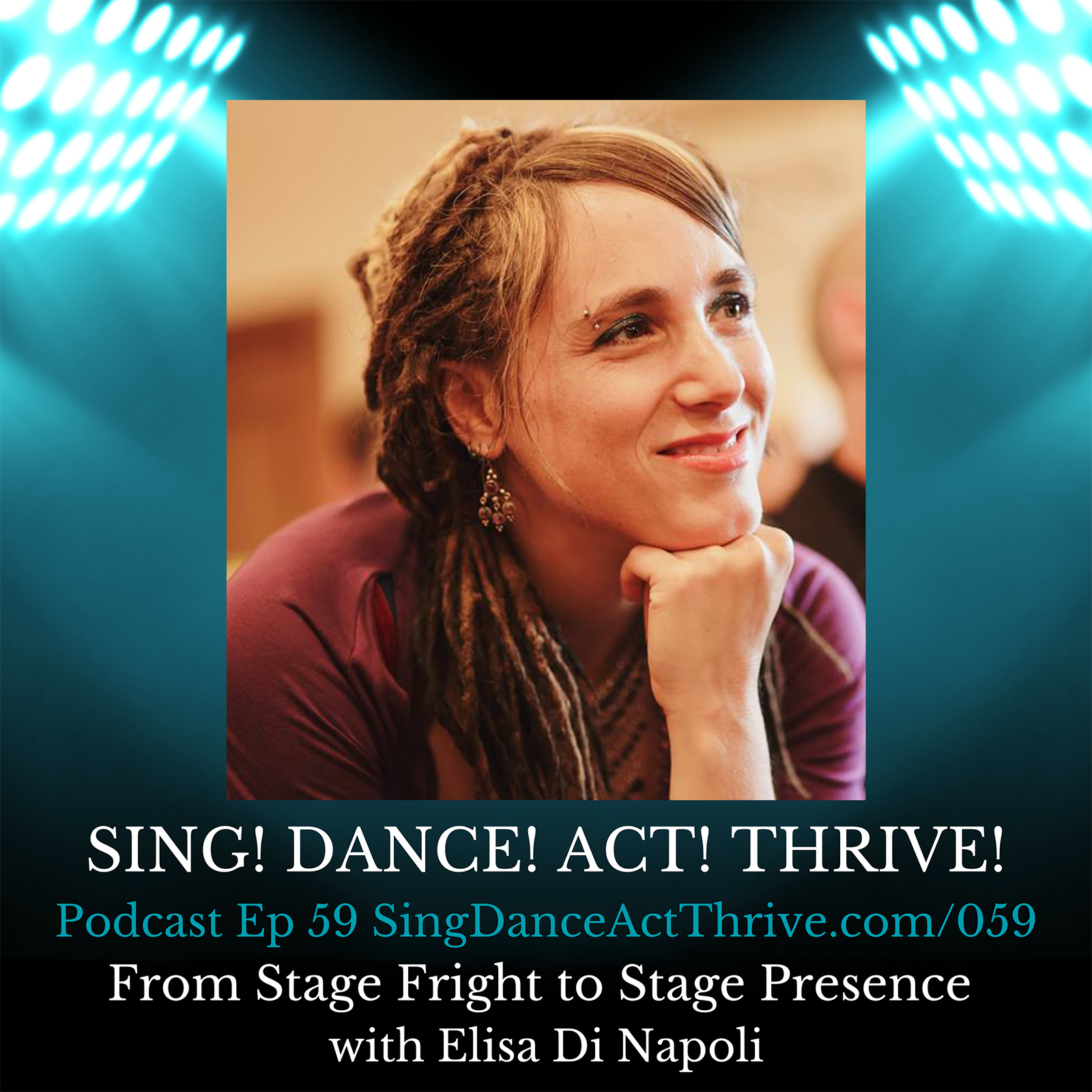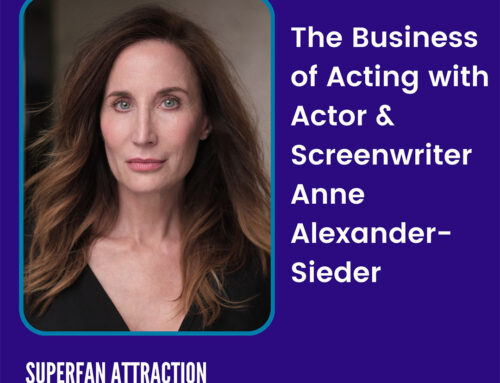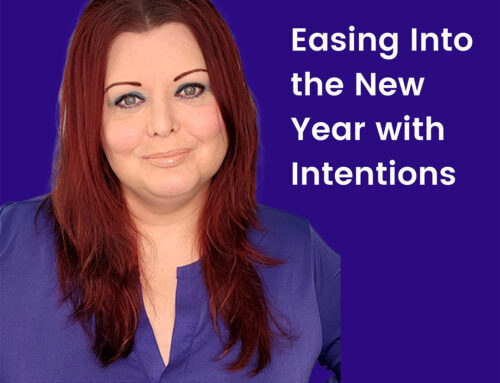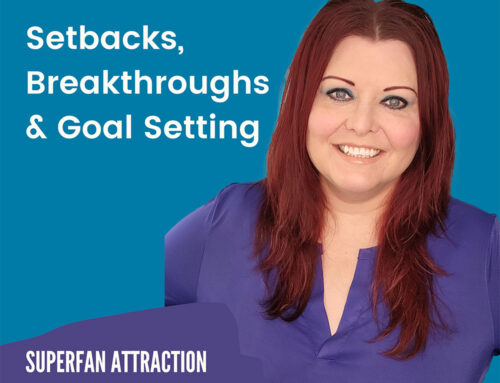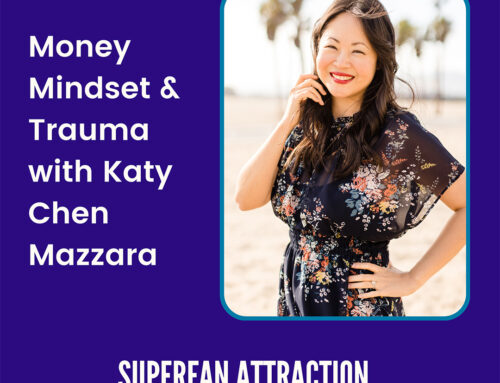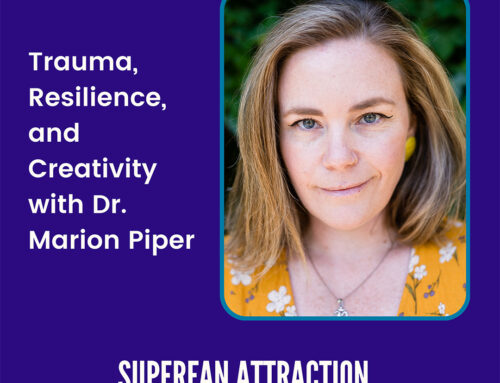Do you suffer from performance anxiety? My guest on the Sing! Dance! Act! Thrive! podcast this week Elisa Di Napoli is the author of Dare To Be Seen, From Stage Fright To Stage Presence. The Dare To Be Seen book, course, and podcast help artists command the stage, magnify their presence, and defeat stage nerves so they can share their gifts with their audience and shine their light on the world. Elisa is an artist coach, hypnotherapist, and multi-instrumentalist singer-songwriter. Be sure to sign up for your exclusive gift from Elisa here https://hypnotichealing.co.uk/audry
From Stage Fright To Stage Presence with Elisa Di Napoli
TRANSCRIPT:
Hello and welcome to episode 59 of Sing! Dance! Act! Thrive!
Who feels me when I say, “2020 did not go according to plan”?! So many things are uncertain and anything BUT business as usual.
Performing artists and the industry that supports them were hit hard throughout the pandemic, however, the artists that had already built up an online profile and audience were the ones who managed to not only survive but to thrive in lockdown.
What I know for sure, though, is that many of us got through it by diving into even more arts and entertainment than ever before even if live performances were virtual.
Artists have the power to change lives with their talent, which is why I got into coaching musicians and actors in the first place.
This is why I am committed, come what may, to help my clients attract fans, media, and industry so that they can book gigs and make money with their talents.
Do you choose a word or slogan each year? I’ve chosen “Breakthrough” as my word for 2021.
If you ever feel like your progress suddenly just slams into a brick wall, I promise you, I’ve been there! In fact, the harder I work the more frustrating it becomes when I still don’t feel there yet, wherever there is.
But I want to tell you that you only hit walls when you’re moving out of your comfort zone. And if you’re hitting walls, you’re still going.
If you’re committed to breaking through, be sure to download the free resource How To Attract Fans, Media, & Industry for Musicians and Actors. The 6C Phase Roadmap to Book Gigs & Make Money
My guest today is Elisa Di Napoli, the best-selling author of the book, online course, and podcast Dare to Be Seen which helps artists command the stage, magnify their presence, and defeat stage nerves so they can share their gifts with their audience and shine their light on the world.
She is an artist coach, hypnotherapist, and multi-instrumentalist singer-songwriter. She also helps artists who need to find a way forward, get their project going, or figure out how to turn their creative, artistic, or performance skills into a new venture.
*Transcript Moto: “Done is better than perfect”
[00:04:54.630] – Diane Foy
Hi, welcome to the show. I love the name of your podcast when I first saw it, dare to be seen and then I see that you have a book, dear, to be seen from stage fright to stage presence.
And I think that’s that kind of the title sums up everything that I think we all want to know is. Because that could be that could apply to performers, musicians, actors, but that could apply to anyone who’s like public speaking or even to have a fear of going on video because social media is all about video now. And I know I’ve been putting that off as well.
So, yeah. So I’d love to hear a bit about how you got started and which came first, the fact that you’re a singer songwriter or that you are a hypnotherapist and practitioner.
[00:05:37.820] – Elisa Di Napoli
Well, I started making music when I was pretty young, I was 16, so of course, I couldn’t have been a therapist back then, but I became and I was pretty young as well in my 20s, except I had a problem with performance anxiety. I didn’t know that that was the name of my performance anxiety. I didn’t understand what was going on. I just felt very nervous on stage before and after the performance. And I didn’t really enjoy very much.
But I continued nevertheless and tried to resolve the problem. Even though I wasn’t hypnotherapist, I didn’t quite. You didn’t click. You know, it’s like sometimes when you’re too close to a problem, you become a bit blind. You could have a blind spot. And for me, I had a blind spot. I just assumed that this was a problem that I had and that couldn’t be helped with it, that I didn’t even enter my mind. So I tried various other things that, you know, I took beta blockers eye to eye. You know, I would drink a couple of glasses of wine before performance, but it didn’t actually work at all.
Made it sort of worse because one of my biggest fears was that I would forget the words of my songs or that I forget the chords of my songs. That was the main thing. And I would also very much focus on mistakes, be afraid that I would not be good enough, that people would be judging and thinking, what the heck is that she thinks she’s doing up there? She shouldn’t be up there. And so therefore, I didn’t have a lot of fun and throughout this time.
[00:07:32.420]
I was still practicing hypnotherapy, but I wasn’t focusing on performance anxiety at all, and I was, you know, helping with other problems. And then at one point I basically came close to giving up completely because it was just too stressful. And I thought, why am I doing this? This is ridiculous. I’m not having a good time.
[00:07:54.900]
And that’s when I actually it kind of came to me. I thought, wait a minute, there is one thing I haven’t tried. I haven’t tried asking my colleagues for help. So I did. And I went round and asked other hypnotherapists to give me sessions on this particular issue. And that really helped more than anything else I had before. And so then I thought, OK, and I need to help other people. And I and so I started studying the topic and sort of trying to find out what really was effective, what what didn’t work and what did work. And so and the rest is history. And after that, I decided to write a book and of course and the rest of it.
[00:08:44.270] Diane Foy
Right, and so before this, you’re trying to be a singer songwriter releasing music, but just the stage thing where you find in the studio, is it just a stage thing?
[00:09:01.890] – Elisa Di Napoli
It was just a stage thing. I mean, in the studio, you know, you can make mistakes. It doesn’t matter. You can edit. And also, I have my own studio and I work a lot on my own. So then there’s time to relax. No one’s there to judge what you’re doing. So it was actually really I quite liked being in the studio by myself because of that. But I did find that, you know, there’s something about performance with the audience in front of you.
I have found that especially now after all these years and after feeling a lot more comfortable, that there’s a magic that that happens when you’re on stage, that it’s very hard to have on it in the studio while recording, you know. Yeah. So, yeah, it’s definitely a stage thing.
[00:09:53.600] – Diane Foy
And so since you’ve kind of over come this, what have been some of your highlights as a singer songwriter?
[00:10:02.840] – Elisa Di Napoli
Well, just before lockdown started happening a year ago here in Scotland, I had a fabulous gig that in Glasgow that I just felt, you know, I was just a feeling of, oh, this is what it’s like. You know, this is the high that you get when you feel completely at one with the music. It’s almost as if there’s no one in front of me. I mean, I am aware that the audience is there, but I am communicating my the feeling of the song directly to the audience and I am feeling it 100 percent.
And it just felt like, you know, like, oh, this is what the divas of us feel like, you know, the big stars on the big stages that this is what it’s like. You know, it doesn’t matter how many people are watching because it’s about the connection with the material. Yeah.
[00:11:02.960]
Yeah. So that was one highlight and then also during a fringe performance a few years ago, I had a moment where I felt, you know, I was talking to the audience and I used to find that really hard. I used to find talking to the audience that awful because either I would over talk, like, just just go blah, blah, blah, blah, blah, blah, about stuff that no one cares about. Or I would just say nothing.
And that didn’t work. Or I draw, you know, I would have a joke. And I think I just have to repeat this joke and then they laugh and then they wouldn’t because it was just not, you know, it was manufactured or it wasn’t present. And this time instead I got it. And I was just there present with the audience and felt like, oh, these are just like friends, you know, that’s how I felt in my power. And I felt connected with them. So a completely different feeling.
[00:12:03.410] – Diane Foy
What are some of the tips that you include in your book?
[00:12:08.240] – Elisa Di Napoli
Well, there’s so many, but, um, because the thing is, there is many different elements to this. There is there’s many reasons why we can feel this way. But basically it all comes down to anxiety and anxiety is pretty normal. But when it becomes excessive, that’s when we have a problem. And the thing is, it’s all about fear of rejection, you know, and we are wired to be afraid of rejection because we are social animals.
And if if we get thrown out of the tribe, so to speak, I mean, in the past, we would have died possibly if we were not included in our in our tribe.
But obviously these days, things would be different. But still, it is seen as a threat. So first of all, we need to recognize what it is we need to understand, become aware. OK, what is this? Where is it coming from? If there’s trauma in the past that needs to be resolved, you know, and then there is it’s what we need to look at the past, but also we need to look at the present.
[00:13:23.450]
We need to look at the fight or flight, which is happening when we feel flustered, when our heart is going, you know, a hundred miles an hour when I thought he sparked all those things that are a symptom of the fight or flight reflex. So there are techniques that we can put into place. And one of them that’s pretty simple, that works quite well, is a ritual that we can do before going on stage so that we calm ourselves.
[00:13:57.650]
We we switch off for the fight of flight. But for this to work, we need to do it before the the actual performance. And so basically, there’s two things. There’s a very effective one is that we need to engage in that in that dramatic reading so that family breathing is when you’re reading through the nose, your mouth is shut and you breathe in for four, you hold for a couple of seconds and then you breathe out for eight or longer. But we need to be doing this for five minutes. And what this does is it switches off the fight or flight response and it switches on the nervous system, which is basically responsible for us relaxing. And that’s necessary.
If we don’t do that, it’s impossible for us to think straight anyway. So that’s one thing that we can do. And one other thing that we can do, if possible, that helps is aerobic, aerobic exercise, aerobic exercise.
So that could be, you know, jumping jacks or running up and down the stairs. Sometimes whatever is basically simulating a fighting or fleeing from the enemy. In this case, the enemy is. Imaginary, but it doesn’t matter because the amygdala, which is the center of the brain, is thinking that there is an actual threat out there and normally the threat would be physical. So we would have, you know, adrenaline and cortisol pumped into our system.
[00:15:38.480]
And until we are fighting that enemy or running away, we can’t really relax.
[00:15:46.520]
So these two things go hand in hand together. I like to do the jumping jacks first and then the erotic breathing laser. If, on the other hand, you know, the panic is happening during the performance, obviously you’re singing that it’s quite difficult to do this, but if you’re playing an instrument, you can breathe. You can still breathe in this way, using your nose. If you’re singing, then it’s a matter of the rest. I mean, it’s quite difficult to do this because you, of course, have to open your mouth.
[00:16:20.550]
So you can’t really do that. But then there’s other things, the psychological interventions so that are really important and and they use hypnosis and those ones are very powerful. And you need to do them before the performances. So these sessions, you know, these hypnotherapy sessions are to do with a bunch of stuff that depends. You know, it depends what you do. What you do depends on what is actually happening.
[00:16:51.480]
So, for example, if you are a you know, you are thinking about the past a lot, you know, or you’re thinking about what happened or you’re thinking, what if this happened? What if that happens? You’ve got intrusive thoughts or you are anxious in terms of your rehearsing, in your mind what the all the bad and catastrophic things that might happen when you’re on stage? Well, there’s different sessions, different interventions for each one of these.
[00:17:21.300]
And they’re based on a cognitive behavioral therapy. They’re based on an LP. They’re based on mindfulness. You know, it really depends on what is going on with you specifically.
[00:17:38.770] – Diane Foy
And how do you work with artists?
[00:17:42.410] – Elisa Di Napoli
You mean to to help with this problem in general,
[00:17:46.280] – Diane Foy
yeah, so like someone will come to you because they have a fear of being on stage and it makes them nervous. And all those things that you were describing that you went through, they come to you. For help, how do you work with them, how can you help them?
[00:18:08.060] – Elisa Di Napoli
Right? Well, first of all, if they come to me, you know, one on one, then what I would do is see them for a consultation first. And this consultation, we get to understand exactly what the issue is and what it’s coming from. You know, is it just is it just coming from imagining the worst, such as catastrophizing or is it coming from a trauma, something that happened in the past that connected to performing or being judged or criticized or not being good enough, that kind of thing?
[00:18:45.020]
Is it a combination of the two or is it something else? So once we figure that out, then why would see the person for a few sessions? Usually, you know, it doesn’t take that long. On average, four to eight sessions is enough. So that means a month or maximum, two months would be enough to shift this and then the person would have to keep on going and maintaining what they’ve learned, of course. But it’s like going to the gym at first.
[00:19:17.810]
You know, if you haven’t if you’re really unfit, you have to go to the gym quite often. And then once you get fit, it’s much better to maintain that level of fitness. If, on the other hand, the client couldn’t afford to see me one on one, or maybe they cannot for whatever reason, then the next idea would be to read my book. In fact, you know, reading my book would be a great thing, a great first step, because then you really understand the principles underneath all of this.
[00:19:49.790]
And then I’ve got an online course that I created exactly for this purpose, because actually in this online course, there’s 10 different audio sessions and they all tailored to different aspects of the problem. So so someone that couldn’t come to see me one on one or couldn’t afford it could simply take the course. And if if they did all of the sessions, that definitely would find their problem has been resolved as long as they follow the instructions, because the ten sessions cover everything, you know, cover all possible aspects of the problem.
[00:20:35.710] Diane Foy
That’s great, great resource. And also the Dare to be Seen podcast. What made you start that and what kind of do you always have a guest on the podcast or you do solo shows as well?
[00:20:52.970] – Elisa Di Napoli
Well, when I first started it, I had so many ideas. I wanted to talk about the transformational power of music and of being a musician. I wanted to talk about these stories, but not just my story, but everybody’s story, other people’s stories. Then I thought it would be good to to focus on female indie singer songwriters, because, of course, I am a female and a singer songwriter. I understand what that is like. And I thought it would be useful to confront myself with other women in the field because I am really passionate about that.
[00:21:29.660]
You know, when I was growing up, I didn’t have a lot of support for my music. I had a lot of people just kind of not understand why I was doing this. I didn’t have a musical background and, you know, I wasn’t particularly encouraged and I wasn’t a very male kind of industry. All the band mates were always male and I felt insecure. And I just thought, oh, man, I really want this situation to change and I would like to find out what other women’s experiences are.
[00:22:02.870]
So I started as an interview based podcast, and I was inspired because sometimes I really didn’t expect it. But I met a lot of people from different places in the world that had very different experiences and they were inspiring for me. It actually was empowering for me to get my act together and go, wait a minute, these people are doing a lot of stuff that I want to do.
[00:22:30.650]
But I almost felt like I gave up a bit of my music and and focused a lot on being a therapist and being a, you know, a coach. And I realized, wait a minute, actually, you know, I should get back to music because it’s this is really important for me. So in that way, they were really useful. And then now I’m kind of thinking, wow, I am enjoying these interviews. And that’s definitely going to still be part of the show.
[00:22:59.780]
But I think I am going to try to do to basically do more of a variety show. So meaning interviews half the time and half the time. I think I’d like to share what I’ve learned about songwriting, being an artist and and basically share about topics that are dear to me to to help other women feel empowered. Yeah, that’s kind of how I started to like I planned on having a balance of guests and solo shows, but I didn’t really do a lot of soul shows.
[00:23:41.270]
I guess it takes at first it was like, oh, I’m talking to someone, I’m good, but like just left my cell self with a blank screen. So I find, like interviews, it gets you started. And it’s been amazing for making connections and and learning from different people in the industry that we all either they are a performer or they work with performers in a different way than I do. And it’s been really great to learn from all these people.
[00:24:13.630]
And then now I think I want to do a little bit more teaching and sharing all that I’ve learned.
[00:24:21.910] – Diane Foy
Yes, I can absolutely relate to that. Yeah. Cool. So what are some of your hopes for the future? Do you want to do more music? Is there something else you want to tackle?
[00:24:41.950] – Elisa Di Napoli
Well, funny you should say that, because for a long time I was quite dissatisfied with my kind of lack of initiative when it came down to music. I mean, I used to be all about the music. And then after some experiences, there were not so nice or not so positive.
[00:25:01.720]
I kind of almost gave up and I was very unhappy about this for quite a long time. I knew that that was just wrong and I needed to get back on track. And then and then at the end of the year, I got really fed up with the lockdown’s and the and just not being able to do anything musical at all. And I thought, OK, this this is really time. It’s time to change. It’s time to be serious about this and find something else.
[00:25:32.910]
So I recently made some decisions and I’m very happy about this decision.
[00:25:39.790]
So I’m back studying. I mean, I’ve been studying drumming for seven years, but now I’m a practicing a lot and learning a lot. So I’m studying withdrew mail online and there are wonderful community. Then on the other hand, I’m also studying songwriting with the Berklee School of Music, and that’s super exciting. I’ve always wanted to be studying with, you know, with that school. They’re just so amazing. And and also just because it’s not enough, I decided also to start studying again piano with the academy.
[00:26:22.510]
And again, Steven really is an amazing teacher and he’s just really opened my eyes to what I was doing wrong on a feeling. I’m finally getting back on track and just playing every day. And I started also, you know, doing intros for podcasts and composing things and it just feels like this is the right path. So I’m super stoked about that. And then when I moved to New Zealand next year in October, what I’d really like to do is to start again a night that I used to have here in Edinburgh.
[00:26:59.440]
So I’m going to be opening a sort of are there to be seen night and Wellington for young artists and not so young anyone really who wants to.
[00:27:13.320]
Express themselves and shine their light and and that’s really exciting, I’m going to do that with a friend and I just would love to kind of explore and a New Zealand music scene and and get out there in the real world once again.
[00:27:31.650] – Diane Foy
One day we can perform again. Yeah. So why are you moving to New Zealand?
[00:27:38.850] – Elisa Di Napoli
Well, I used to live in New Zealand when when I was in my 20s. So I lived there for 12 years. And I’m a citizen and I here in the UK, you know, the situation is pretty dire, especially with Brexit now. And it just doesn’t look very good. And although I’m OK, I don’t know, I just don’t really like the atmosphere. And this is covid situation has really been challenging. And my parents live in New Zealand.
[00:28:13.440]
I’ve got old friends in New Zealand. And it just seems like after going back last year for of all of the. That it’s a better place to go to live, you know, just like in terms of lifestyle, as it’s more green, as more laid back, and I think it’s a good place to to be right now. I mean, I would have a normal life if I lived there at the moment. And also, you know, I think at a certain age, you kind of feel at I kind of feel that I need to be with old friends and I need to be with people that I can grow older with and then I can count on.
[00:28:56.100]
And plus my parents are there. So I don’t I think it would be good to be with them in their old age. Yeah, yeah. That’s great.
[00:29:05.340] – Diane Foy
And the night sounds fantastic that you want to create. You’ve done that before in Scotland. Yeah, it was.
[00:29:13.570] – Elisa Di Napoli
I had a night called Open Space and it was basically emerging artists. And I would you know, people would apply to be on the show and I would that, you know, who I thought would be a good fit. But it wasn’t only singer songwriters. It was more like a variety show. So I had, you know, comedians had musicians. I had four points and I had storytellers and improvises and sketch comedy and all kinds of things. I mean, is a lot of work.
[00:29:50.640]
So this is how I’m going to do it with someone else, because, you know, I just can’t do everything. My energy is not limited, you know, unlimited.
[00:29:58.890]
But but yeah, that was fun. And I thought, oh, God, I think I want to do something kind of similar. But I mean, I’ve got so many ideas. You know, I used to be an improviser. I used to do improv, did that for three years as well. And I found that that was also really good for for for increasing confidence in performance and for being present. Really can be good for teaching you to be present.
[00:30:27.990]
And so I thought, well, maybe I can I can use those skills that I learned to to help younger, younger people. But I don’t know. You know, it’s all very open at the moment. I mean, I would also like to teach songwriting. I don’t know.
[00:30:46.240]
We’ll see what happens while some there if you’re like me, you just want to do a million things to do many things to many.
[00:30:54.060] – Diane Foy
And there’s yeah, mine goes in a million different directions and it’s a it’s a multi passionate thing.
[00:31:00.840] – Elisa Di Napoli
It’s like, yeah, we discover something new or new idea. Then we’re all in, we’re like dive. Right. Yeah.
[00:31:07.560]
I basically need to live, you know, a theme of ten.
[00:31:11.400] – Diane Foy
Tell me, you know, we could do everything we wanted to do if we could just clone ourselves like maybe ten of us. Yeah, absolutely. And we can’t hire people because they wouldn’t be a good at it as much as we are.
[00:31:25.260] – Elisa Di Napoli
Yeah. And also, you know, it costs it costs to hire other people and. Yeah. We do everything ourselves, it’s good, cool, so I always ask, what is your why why do you do what you do? Well, why do I do what I do? The main thing is, well, there’s I’m a committed to military things and these are Conexion. And truth and self-expression, so that is what informs both the therapy work and the music, and in the end, for me, it always boils down to the transformation of the dark into the light, if you like, or healing.
[00:32:20.050]
You know, there’s an element of healing in in my music. I have always done it to heal myself. And now, you know, I didn’t find it very therapeutic. And then, you know, in therapy, obviously, and in coaching, there is also, you know, healing is part of it. So I suppose that’s the philosophy underneath. You know, why am I doing all this? Well, because what else could I do?
[00:32:51.700]
You know, I would feel very unfulfilled if I did anything else. And I’ve tried. I’ve tried. I did many, many other different jobs. And they just none of them worked. And this is what feels. In alignment with my principles, yeah, yeah, and even when you described your the three parts of your Y, those are three core values.
[00:33:18.440] – Diane Foy
Yeah, that’s amazing. So everyone should check out your podcast, dare to be seen and go get the book. Dare to be seen from stage fright to stage presence. And where can people find you online. I’ll leave links. But what are your main website and Sociales. Yeah.
[00:33:37.730] – Elisa Di Napoli
So the main ones are the dare to be seen podcasts dot com and the dare to be seeing community dot com there one on an old one and the same. And my music is Ellisville first dot com and my coaching and therapy website is Hypnotic Healing Ducote UK. And in fact I wanted to offer of a resource for your listeners. So if if they go to a particularly local UK smash Audry, they will actually be able to download the book for free.
[00:34:20.370] – Diane Foy
And so wonderful. Yeah. You know. Why not, why not? That’s amazing. It sounds like a great resource. I will go grab that myself. And thank you so much. It’s been great chatting with you. Well, thank you for inviting me. I hope you enjoyed the episode chocked full of inspiring information and be sure to grab the freebies mentioned.

